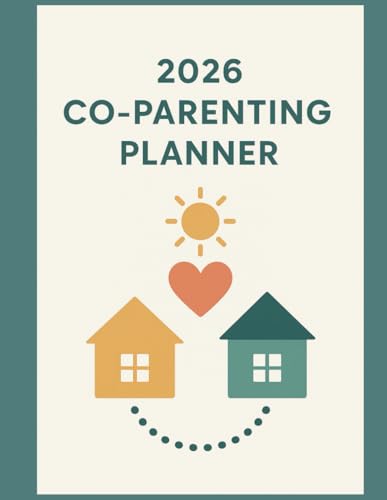To set boundaries without drama, focus on clear, respectful communication by using direct language and avoiding personal attacks. Keep discussions centered on your child’s needs and stay calm, even during disagreements. Use tools like shared calendars to organize logistics and take breaks if emotions run high. Respect emotional boundaries by separating personal feelings from decision-making, fostering a cooperative environment. If you stay committed to this approach, you’ll discover actionable strategies to maintain a healthy co-parenting relationship.
Key Takeaways
- Use respectful, transparent language to set clear boundaries and avoid misunderstandings or assumptions.
- Focus on shared goals and the child’s best interests to keep conversations constructive and drama-free.
- Take breaks when emotions run high to maintain calm and revisit discussions calmly later.
- Limit communication to essential logistics and decisions, avoiding personal grievances or criticisms.
- Foster teamwork by establishing roles and responsibilities, emphasizing cooperation over conflict.

Effective co-parenting communication is essential for creating a stable environment for your children. When you focus on shared decision making, you ensure that both parents are actively involved in important choices about your child’s well-being. This collaborative approach helps prevent misunderstandings and reduces conflict, making your child’s needs the priority. It’s important to establish clear roles and responsibilities, so each parent knows what decisions they’re responsible for and which ones require joint input. By doing so, you foster a sense of teamwork and respect, even if your relationship with your co-parent is strained.
Setting emotional boundaries is equally vital. You need to distinguish between your personal feelings and your child’s best interests. When you keep emotional boundaries in place, you avoid bringing unresolved conflicts or negativity into discussions about your child. This means resisting the urge to vent frustrations or criticize your co-parent in front of your children or during conversations about them. Instead, focus on maintaining a respectful, neutral tone. This not only models healthy communication but also keeps interactions productive and free of drama. Emotional boundaries help you stay calm and centered, which benefits your co-parenting relationship and provides stability for your children.
When it comes to shared decision making, keep communication transparent and focused. Use clear, direct language, and avoid assumptions or vague statements that could lead to misunderstandings. If disagreements arise, address them calmly and look for compromise rather than trying to “win” the argument. Remember, your goal is to support your child’s development, not to prove a point or vent frustrations. When you involve the other parent in decisions about education, healthcare, or extracurricular activities, you’re reinforcing the idea that you’re both committed to your child’s best interests. Recognizing the importance of color accuracy in communication helps ensure that visual information is clear and correctly interpreted, which can be relevant in areas like medical or educational decisions.
In terms of emotional boundaries, it’s crucial to keep personal conflicts out of your co-parenting interactions. If emotions run high, take a break and revisit the conversation later when you’re more composed. This prevents escalation and keeps the focus on solutions rather than blame. Respecting each other’s boundaries also means avoiding unnecessary communication outside agreed-upon channels or times. Use tools like shared calendars or communication apps to stay organized and keep discussions focused on logistics and decisions, not personal grievances.
Ultimately, establishing boundaries without drama isn’t about avoiding difficult conversations; it’s about approaching them with respect, clarity, and a shared goal. When you prioritize shared decision making and emotional boundaries, you create a cooperative environment that benefits your children’s emotional health and your co-parenting relationship. This approach fosters stability, reduces conflict, and demonstrates to your children that respectful, constructive communication is possible even after separation.

Co-Parenting Planner: 2026 Co-Parenting Calendar And Shared Journal
As an affiliate, we earn on qualifying purchases.
As an affiliate, we earn on qualifying purchases.
Frequently Asked Questions
How Do I Handle Disagreements Without Escalating Conflicts?
When disagreements arise, you can prevent escalation by recognizing your emotional triggers and staying calm. Practice effective listening to truly understand the other person’s perspective, which helps de-escalate tension. Take a moment to breathe and avoid reacting impulsively. Focus on finding common ground rather than winning the argument. This approach promotes respectful communication, reduces drama, and keeps conflicts productive rather than destructive.
What Tools Can Improve Co-Parenting Communication?
Picture perfect communication begins with tools like effective listening and clear expectations. You can improve co-parenting conversations by actively listening to your ex, truly hearing their concerns without interruption. Set clear expectations about roles, responsibilities, and boundaries to prevent misunderstandings. Utilizing respectful emails or shared calendars keeps everyone on the same page. These tools foster calm, constructive communication, helping you navigate co-parenting with confidence and cooperation, minus drama.
How to Set Boundaries With a Difficult Co-Parent?
When dealing with a difficult co-parent, you need to set clear emotional boundaries and stick to them. Communicate using respectful language, even in tense moments, to keep interactions constructive. Be firm but calm about what’s acceptable and what’s not, ensuring your boundaries are understood. This approach helps protect your emotional well-being and fosters a more cooperative environment for your child’s sake.
When Is It Necessary to Involve a Mediator?
You should consider involving a mediator when conflict resolution becomes difficult or communication breaks down, making it hard to reach agreements. Mediation timing is essential; seek it early if issues persist despite your efforts, to prevent escalation. A neutral third party can facilitate productive conversations, ensuring boundaries are respected without drama. If disagreements threaten your child’s well-being or your ability to co-parent effectively, involving a mediator is a wise and necessary step.
How Do I Maintain Boundaries During Emergencies?
During emergencies, you need clear protocols, calm communication, and firm boundaries. Stick to emergency protocols, avoid emotional reactions, and reinforce boundaries by focusing on your child’s safety and well-being. Maintain consistent responses, avoid blame, and stay respectful. By doing so, you guarantee boundaries are respected, reduce drama, and handle crises effectively. Remember, in emergencies, clarity and composure help you protect your child’s needs while keeping boundaries intact.

The Complete Child Custody Journal: Your Comprehensive Tool for Documenting Visitation, Communication, Spending, Child Support, and More | Child Custody Organizer | 8.5-inch X 11"-inch
As an affiliate, we earn on qualifying purchases.
As an affiliate, we earn on qualifying purchases.
Conclusion
Remember, clear boundaries are like sturdy fences that protect your peace, while open communication is the gentle breeze that keeps everyone moving forward. When you speak with kindness and listen with patience, you build bridges instead of walls. Keep the rhythm steady—calm and confident—and watch your co-parenting journey become a harmonious dance, free of drama. With these tools, you’ll create a peaceful rhythm that nurtures your child’s well-being and your own peace of mind.

Setting Boundaries That Stick: How Neurobiology Can Help You Rewire Your Brain to Feel Safe, Connected, and Empowered
As an affiliate, we earn on qualifying purchases.
As an affiliate, we earn on qualifying purchases.
co-parenting decision making organizer
As an affiliate, we earn on qualifying purchases.
As an affiliate, we earn on qualifying purchases.










